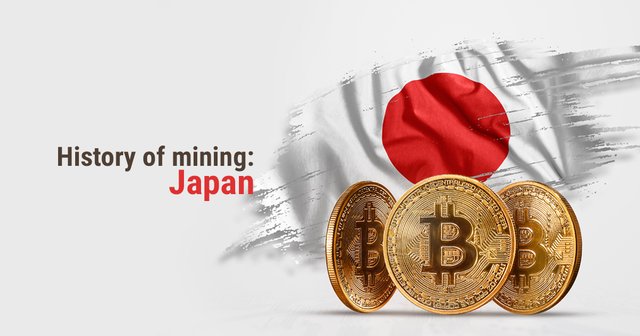
Why hasn't Japan become the mining capital? The answer is simple - the cost of electricity. But this does not prevent Japan from being one of the countries that miners consider to conduct their business. And there are several important reasons for this:
Japan leads the world in accepting, regulating and even legalizing cryptocurrencies. Today, bitcoin in Japan is a legally recognized currency. Bitcoin holders are protected by law, and its turnover is not regulated today.
3.5 million citizens trade cryptocurrencies nowadays in Japan. The use of cryptocurrency in Japan in 2016 already amounted to two billion dollars. And this is about 11% of the total volume of trading operations with BTC. Japan took the first position in terms of internal Bitcoin turnover.
The fact that the creator of Bitcoin used a Japanese name as his pseudonym is also interesting. Satoshi Nakamoto tied bitcoin to Japan forever.
The explosion of bitcoin in Japan occurred in 2013, immediately after China introduced a package of laws restricting the exchange of the main cryptocurrency. Then crypto investors moved their accounts to a crypto-loyal country. And it was the right decision!
At the beginning of 2016, Japan recognized cryptocurrencies as suitable for making payments at the state level. Financial technology was widely considered in the bill that allowed the use of cryptocurrencies, and virtual currency was considered part of this growing field.
Thanks to this law, the turnover of cryptocurrencies in the country exceeded two billion dollars by April of the same year. Then in Japan, it was already considered normal to pay salaries in satoshi.
Also, the Japanese minister of finance encouraged the G-20 countries to discuss the issue of cryptocurrency regulation at the global level. This was driven by a large number of cryptocurrency fraud cases in the country. But the government did not plan to introduce any bans to restrict the market. Japan wanted the industry to grow with the right approach to regulation.
But despite this attitude, the country has not attracted a large number of miners. Therefore, in 2017, Japan began experimenting with other energy sources. They began to use a local hydroelectric power station, wind energy, and geothermal sources in the small town of Kazuno.
Japanese villages have even become a real salvation for large mining farms. They provide a wide choice: a lot of space and less expensive electricity tariffs. In addition, the following trend has recently been noted: large miners are buying out old village buildings (mainly workshops) and converting them into farms.
What is the future of cryptocurrency mining in Japan? Now the government is considering introducing the digital yen. Also, the largest bank in Japan, Mitsubishi UFJ, announced the release of its own cryptocurrency in the second half of 2020. Users will be able to pay for purchases using MUFG Coin and transfer money. The coin rate will be equal to one yen.
The country's authorities do everything to make mining effective and attract a large number of investors. All conditions have been created here, except for the fundamental ones. Expensive electricity does not allow to move the mining capital to Japan, here Armenia seems to have more benefits. But if experiments with alternative energy sources will be successful, then we can wait for the fastest development of mining, which has never happened before. What do you think? Write in the comments!